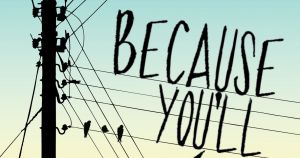
Review: Not If I See You First by Eric Lindstrom
Parker Grant is a complex, flawed character whose blindness was handled realistically; a big part of her life, but not the only part of her life. This is definitely a book I will be recommending.

Parker Grant is a complex, flawed character whose blindness was handled realistically; a big part of her life, but not the only part of her life. This is definitely a book I will be recommending.

Although I sometimes genuinely enjoyed myself while reading this book, those times were unfortunately outweighed by the serious inaccuracies.

It’s sadly hard to see beyond Emma’s reflections on what she can’t do now that she’s lost her sight to actually find out how she’s adapting and adjusting.

It felt like the author used Moritz’s echolocation as a way of avoiding a realistic portrayal of blindness; too many tired blindness tropes popped up throughout the book for me to love and champion it the way others have.

Today we get most forms of entertainment at the push of a button, so we tend to hate having to wait. The situation is even worse if you can’t read print—resulting in an endless waiting game for blind readers.

Although Laureth didn’t represent me as a blind person, Sedgwick didn’t feed off tropes and stereotypes; instead, he met with many young blind people and found out about their lives.

At its core, the Mystical Disabled Person trope is about a disabled character—frequently mentally ill, developmentally disabled, and/or blind—with some sort of unusual ability. This trope is varied, flexible, and depressingly common.
Clichés, ableist language … what kinds of words, phrases, or situations used in book or character descriptions send up warning flags for our contributors?

April Henry’s main character in Girl, Stolen is a well-researched, well-written example of blindness, and we were thrilled to discuss the book with her.
If our contributors could tell an author writing a character with their disability one thing–besides “do your research”–what would it be?